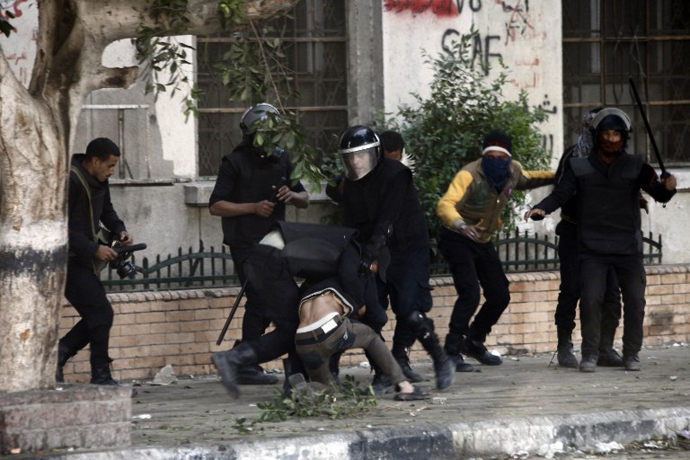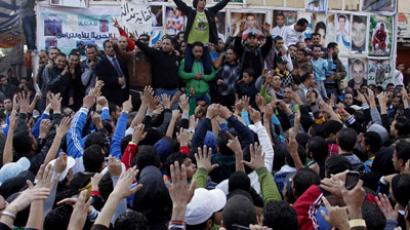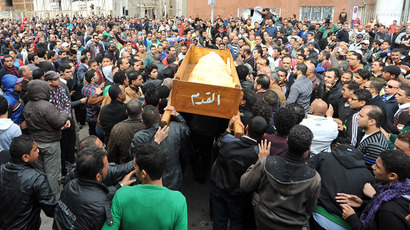Police behind nearly 900 deaths in Egyptian revolution - inquiry
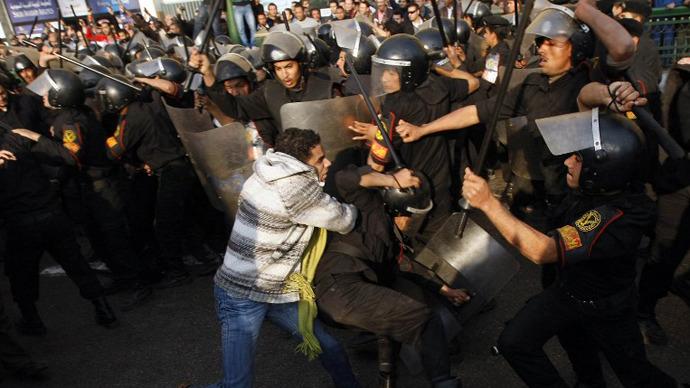
A high-level inquiry into the deaths of nearly 900 demonstrators during Egypt’s 2011 uprising concluded that the police were responsible for most of the killings and used rooftop snipers to shoot into crowds in Cairo’s Tahir Square.
A fact-finding commission into the 2011 popular uprising against
Hosni Mubarak's government initially concluded that 846 people were
killed during the revolution.
Current Egyptian President Mohamed Morsi ordered a report on the
fact-finding commission's findings after he was elected. The report
was then submitted to Morsi and to Egypt’s top prosecutor late last
year.
The 16-member panel behind the report included human rights
activists, lawyers, judges and a representative from the military
prosecutor’s office.
It includes authoritative and in-depth accounts of the killings,
and concludes that lethal force could only have been authorized by
Mubarak's security chief and with the former president’s full
knowledge.
Extensive details are cited, including police logs documenting
the issuance of weapons and ammunition along with the officers who
received them.
“The use of firearms can only be authorized by the interior
minister, who must in turn inform the political leadership
(Mubarak). And if the police continue to use firearms for more than
one day, then the political leadership must be informed,” an
author of the report who wished to remain anonymous told the
National Post, a Canadian newspaper.
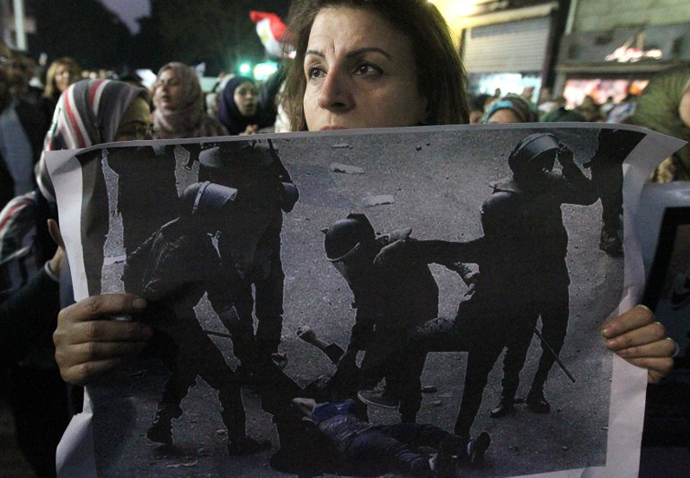
One of the report’s authors, lawyer and human rights activist Mohsen Bahnasy, said he was planning to submit parts of it to the prosecution in Mubarak’s trial, as well as to other courts trying policemen accused of killing protesters.
The report is sure to strike a nerve in Egypt, where only last week three demonstrators were killed and 65 more injured in a protest over the verdict in a case regarding a riot at the Port Said Stadium that saw more than 70 killed.
That verdict came after a week of anti-police brutality demonstrations in Port Said and across Egypt that led police themselves to take to the streets in a rare protest.
